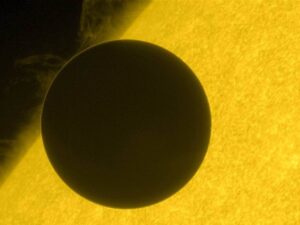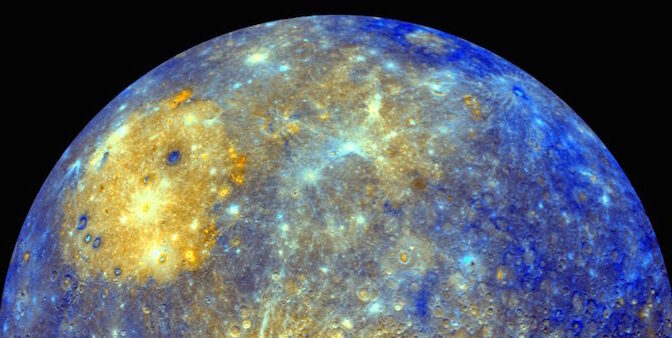On this coming Monday, May 9th, something spectacular is going to happen. This event only happens 13 times every century! For the first time in about a decade, we’re going to witness Mercury make a rare transit across the massive face of the Sun. A transit across the Sun is when a planet passes directly between the Sun and a superior planet and becomes visible against the solar disk. During a transit, the planet can be seen from Earth as a tiny black disk moving across the sun. 
This is an amazing experience to really see the massive size of the sun and what a planet looks like in front of it! This is something that won’t happen again until 2019 and then 2032. So make sure you’re watching!
This astronomical event is easier to watch than most. It’s viewable from most places on Earth, and unlike most cosmic events, this one lasts at least 7 hours to see! It’s easy to know where to look, just go to the light!
The transit is suppose to begin at around 7am EDT and will last all day. Depending on where you live, this is either in the middle of the day, or in the dead of night:
If you live around the Eastern Asia area, it will be in the middle of the night for you unfortunately!

If it’s in the early morning for you or when the sun is setting, that is the perfect time to be able to actually look at the sun. You might be able to see it in the middle of the day, but definitely don’t stare at the sun hoping to see a tiny black dot.
If you have a solar lens, that is perfect. Otherwise you can watch the NASA Solar Dynamics Observatory’s real-time coverage of the event.
The bright background of the sun against the silhouette of Mercury allows scientists to get a better glimpse of Mercury’s thin exosphere, which is the outermost layer of its atmosphere.
What’s so incredible is that Mercury’s atmosphere leaves behind a streak-like-tail along its path that is a staggering 1.2 million miles long! That is quite a tail right there. It’s mind blowing how small these planets look because of the distance, but how unbelievably massive they all actually are.
The planet Mercury is roughly 48 million miles away from us and we get to watch it pass in front of the star that gives us life. Take a moment to ponder your place in this massive, truly infinite universe. Remind yourself that we aren’t alone; there’s much out there waiting to be discovered.

